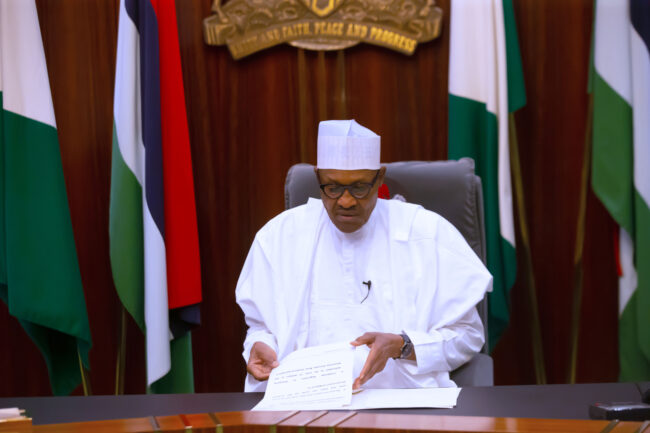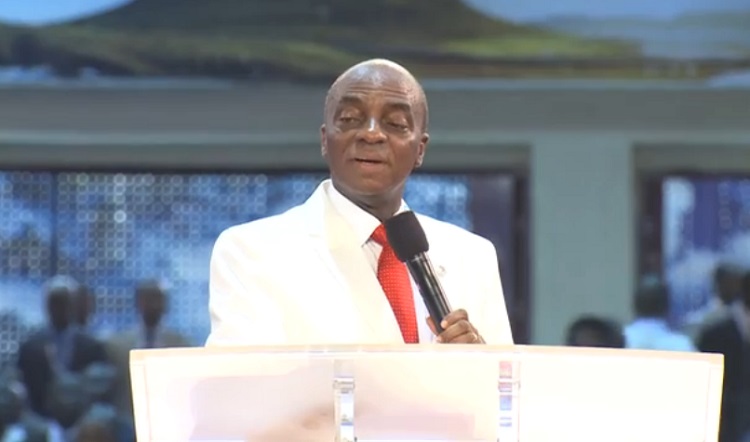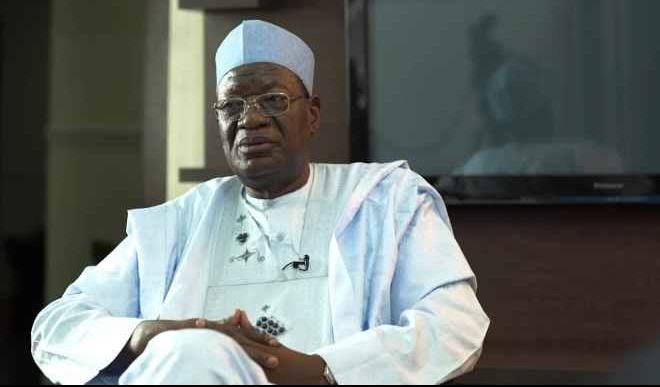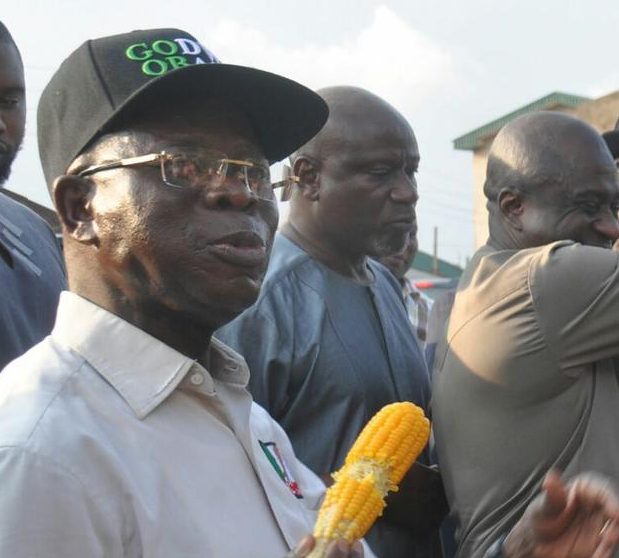PRESIDENT BUHARI SPEAKS ON DIASPORA DAY . President Muhammadu Buhari broadcast to the Nigerian in Diaspora on DIASPORA DAY. JULY 2020. PHOTO; SUNDAY AGHAEZE.
This is the sixty four billion naira question currently raging in the polity. Every permutation and strategy towards the 2023 elections by political figures and political parties has this question at the background. From the possible twists and turns this question may take, we may get to know the definitive answer only at the eventual conclusion of the 2023 elections. And in a wider, much more significant context perhaps the future of Nigeria as an entity may be decided by how this question pans out in the 2023 elections and beyond.
At issue here is whether the northern zone comprised of the northwest, northeast and north central, acknowledged without question as collectively the most decisive political bloc with its massive number of voting population and participation in elections could use this power to ensure that a northerner succeeds President Muhammadu Buhari in 2023 thus perpetuating the northern control of the presidential seat. The southern zone comprising the southwest, southeast and south-south are aware that the north with this advantage at its disposal actually controls the levers of Nigerian politics. Thus there is a very strident clamour that in the interest of national unity and fairness, the north should agree to deploy its political advantage to a southern political candidate for the presidential seat in 2023. In other wards no northern aspirant should be fielded by any of the two major political parties, the ruling All Progressive Congress (APC) and the opposition Peoples Democratic Party, (PDP) for the 2023 presidential race.
As preposterous as that may sound, that is the proposition that our political class is making as panacea for not just the success of the 2023 elections, but for the continued existence of Nigeria.
The suspicion the south harbours that the north intends to retain power in 2023, was given greater traction by the recent statement credited Mallam Mamman Daura, president Buhari’s nephew in an interview he granted the BBC Hausa serviced. In the interview, he said that having tried zoning or rotation of the presidential seat between the zones, Nigeria should now elect its next president in 2023 by competence and merit. Had Mamman Daura not been a close relation and confidant of the president, it would have just passed without the hiatus it has continued to generate. It is taken that either Mamman Daura was either speaking the mind of president Buhari or a cabal in the presidency who favour a surreptitious retention of political power in the north in 2023 and beyond.
In a political system with a well- known unsavoury reputation for inconsistencies and opportunism, most of the people who pilloried Mamman Daura on his call were the same persons who made a similar call back in 2015 when their favoured person Goodluck Jonathan was the president. The irony of that is lost on them it appears.
But beyond all this, is the north really able to retain power in 2023 as some northerners readily believe?
Let us look at the objective factors on the ground.
Advertisement
The north still retains its massive advantage both in registered voters and in voting numbers; three fifths of the voting numbers in all the elections conducted in the country since the advent of democracy in 1999 have been recorded from the three northern zones. In other words, the north leads overwhelmingly not only in the number of registered voters for elections but also in the actual voting during elections as well.
This is one of the underlying reasons behind the belief that the north can retain power if it chooses. It is also one of the reasons behind the fear by southerners that the north can deny power to the south in perpetuity if things continue like that. But I will posit that in the run up 2023, despite the aforementioned advantages, the political dynamics may not necessarily work in favour of the north retaining power for two major reasons.
One, unlike in 2015 the north will not readily have a political figure like Muhammadu Buhari who had a massive and fanatical following running to tens of millions across the three northern zones. There is simply none among the crop of northern political figures that could command such gravitas from northern voters.
Advertisement
The second which is allied to the first is that president Buhari has performed so abysmally that northern voters have become justifiably disillusioned and disappointed not just in him but in most northern political figures. Northern voters who voted massively and hopefully for Muhammadu Buhari cannot fathom why debilitating poverty, insecurity, massive corruption had to be their lot under a government that is headed by a northerner (the one they used to call mai gaskiya or the trustworthy one) and dominated by northerners. To make matters worse president Buhari seems neither to demonstrate a capacity to deal with the existential issues of the north nor even to empathically care about the plight of hapless northerners affected by his rule.
Whereas candidate Muhammadu Buhari was a unifying figure in the north in 2015, as president he has become a divisive figure among northerners on economic, political, security and on every other conceivable issue. Against this background and with all the expectations which accompanied his voting as president in 2015, President Buhari is the greatest de-marketing figure for northern retention of power beyond 2023. Many northerners have come round to the thought that if president Buhari in whom they invested so much hope as the only credible northern political figure left to lead a revival of the fortunes of the north, could turn out to be something contrary to expectation, then there is really no northern political figure worthy of the magnitude of support given to president Buhari.
Coming up to 2023, the north will already be a deeply wounded political entity which will be hard put to cite politically expedient reasons to want to retain power even if it sits on electoral advantages. To put it simply, the northern political advantages in number of registered voters and voting turn out may not be as readily available for use by any northern candidate as it was for Buhari in 2015, all things being equal.
Thus the north can retain power in 2023 only by default which despite the odds against it, is a distinct possibility.
How is this possible? Although there have been a strident clamour for power to be rotated to the south by leading southern political figures and political analysts, there is as yet no coherent and convincing strategy on how that can be done. Indeed the southern zones seem to be at odds on how and which of the three zones should ‘’take the shot’’ (to use a popular Nigerian political term).
The southwest rests its strategy for seeking the 2023 presidential seat mainly on the political fortunes of Asiwaju Bola Tinubu. He towers over any other political figure in influence, resources and political reach. He even has the support of a sizeable number of people in the opposition and of the political neutrals in the region. To the southwest, he represents the best possible chance amongst any of the leading political figures in the zone to bring home the presidency in 2023. This is in keeping with the well-known political tradition of “Tiwa n tiwa’’ or ‘’what’s ours is ours’’ in southwest which translates into rallying behind one of theirs no matter their political differences, where national political issues are concerned. This much played manifested during the presidential campaign of late Chief MKO Abiola.
Advertisement
The south south for obvious reasons, are being coy about claims to the presidency in 2023. The last president before President Buhari, Goodluck Jonathan was from this zone and it will amount to political insensitivity to put their hat in the ring for the 2023 presidency. Still that is not say that ‘’if the ball rolls out from under the scrum, they will not be tempted to take it and run with it”, to use a rugby term. The south south approach is not to overtly show interest in the 2023 presidency publicly but to prepare assiduously on the blind side through quiet but far reaching contacts with the north on the issue with the hope that their claim could be supported when the chips are down. In this regard, the south south has the likes of Transportation minister Rotimi Amaechi, Deputy Senate President Ovie Omo-Agege and Niger Delta Minister Akpabio each making quiet inroads into the north.
The approach of the south east is the most confounding of the three. While the south west is working strongly towards consolidating its 2023 presidential project around Asiwaju Bola Tinubu and the south south is speaking very softly but carrying a big stick on the issue, the south east is seen approaching the matter from a very incoherent and potentially counterproductive manner. Many in the south east have said it loud and clear that they would prefer secession from Nigeria than a south east presidency in 2023. And those in the south east who hold the view that the zone should produce the presidency in 2023 however believe that it should be granted as a political concession by the rest of Nigeria for perceived marginalization in the political scheme of things. The south east insists that the two other southern zones having produced presidents in Olusegun Obasanjo and Goodluck Jonathan, should be automatically allowed to take it. And because of the high stakes riding on the 2023 presidency the south east will not likely countenance or support any candidate from any of the other southern zones.
The north will certainly not feel unhappy at the disjointed way the south as a whole is going about the quest for the 2023 presidency. In contrast to the south, in the north it is relatively easier to build a consensus across the three zones making up the north on a candidate to support during national elections. In the zero sum game that is the hall mark of Nigeria’s politics, nobody should expect the north to encourage or help the south achieve the political consensus it desperately needs to clinch the presidency in 2023. As 2023 approaches, the north will tell the southern zones tongue in cheek as they struggle to outdo one another “hey! common guys the net is wide open, go ahead and help yourself to the goal’’.
The north also knows full well that with its huge number of registered voters and voting numbers, the southern zones would necessarily need its support to actualize their ambition for a southern presidency. The entire clamour for the presidency to be rotated to the south in 2023 rests hugely on the expectation of northern cooperation with the idea.
In the run up to 2023, this situation will play right into the hands of the north whose political baseline will be not to allow power rotation to the south. In this regard I can say right away that the north will not support a south east presidential candidate in 2023. And Tinubu’s push for a southwest political claim which is not supported with much enthusiasm in the north will meet with many lacunae. There will be rivals to challenge him in the zone and his choice of running mate will be acrimonious. In any case the south east will be expected to do anything to scuttle a Tinubu presidential project in 2023.
Advertisement
The south south will be encouraged by these developments to try to put itself out as an alternative which of course will not yield any much headway eventually.
The north holding the aces will rely and encourage the southern zones to cancel out each other politically rendering them ineffective in their quest for the presidential seat in 2023.
The final joker for the north in this act of political brinkmanship will be to work towards the break-up of the APC which is the only one between the two main political parties where power rotation is feasible. The PDP desperate to climb back to the power it lost in 2015 will then opportunistically field a northerner and possibly a running mate from the south east.
Advertisement
If the desired power shift does not happen in 2023, blame the south not the north.
You can reach Gadu via: [email protected], 08035355706 (sms only)
Advertisement
Views expressed by contributors are strictly personal and not of TheCable.
Add a comment







